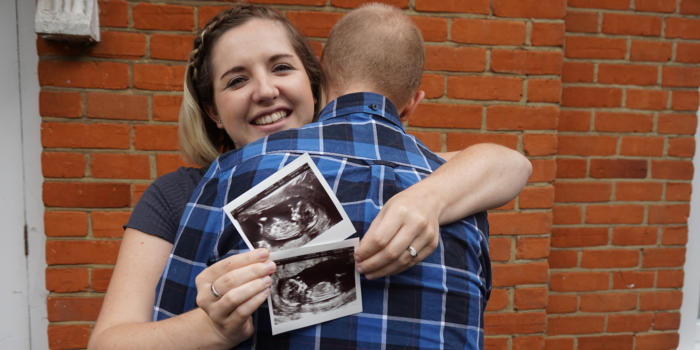The news that you are expecting multiples can come as a big surprise. While some people are delighted, others may be worried, or anxious at how they will cope. Don’t panic: Other parents have been here before you and have not only survived the experience, but they have gone on to thrive with their babies, and so can you.
It may help to ask for a picture of the babies at the first ultrasound. Looking at the picture may help the situation feel more real. Making practical plans can also help. Twins Trust has information on how to manage your finances, and you can talk to parents of multiples to find out what it’s like – your local Multiples Club is a good starting point.

Who has multiples?
Around 12,000 twin births occur each year, with around 200 triplet births and a handful of higher order births. These numbers have been on the increase since 1980, though no one is certain why. Several factors play a role – use of fertility drugs, assisted conception techniques and even maternal age (older mothers are more likely to conceive multiples).
You are more likely to have multiples if there is a maternal history of multiple pregnancies, though the influence of the father’s family history is less clear. What’s certain is that if you already have fraternal (non-identical) twins, triplets or more, then you are five times more likely to carry multiples in your next pregnancy.
Need further information?
Finding out you are expecting twins or higher multiples can be a daunting prospect. At Twins Trust we’re here to help. If you have recently found out you are expecting twins, triplets or more we’ve put together a huge range of resources for you.
<INSERT RESOURCE LINKS>
-strap.svg)